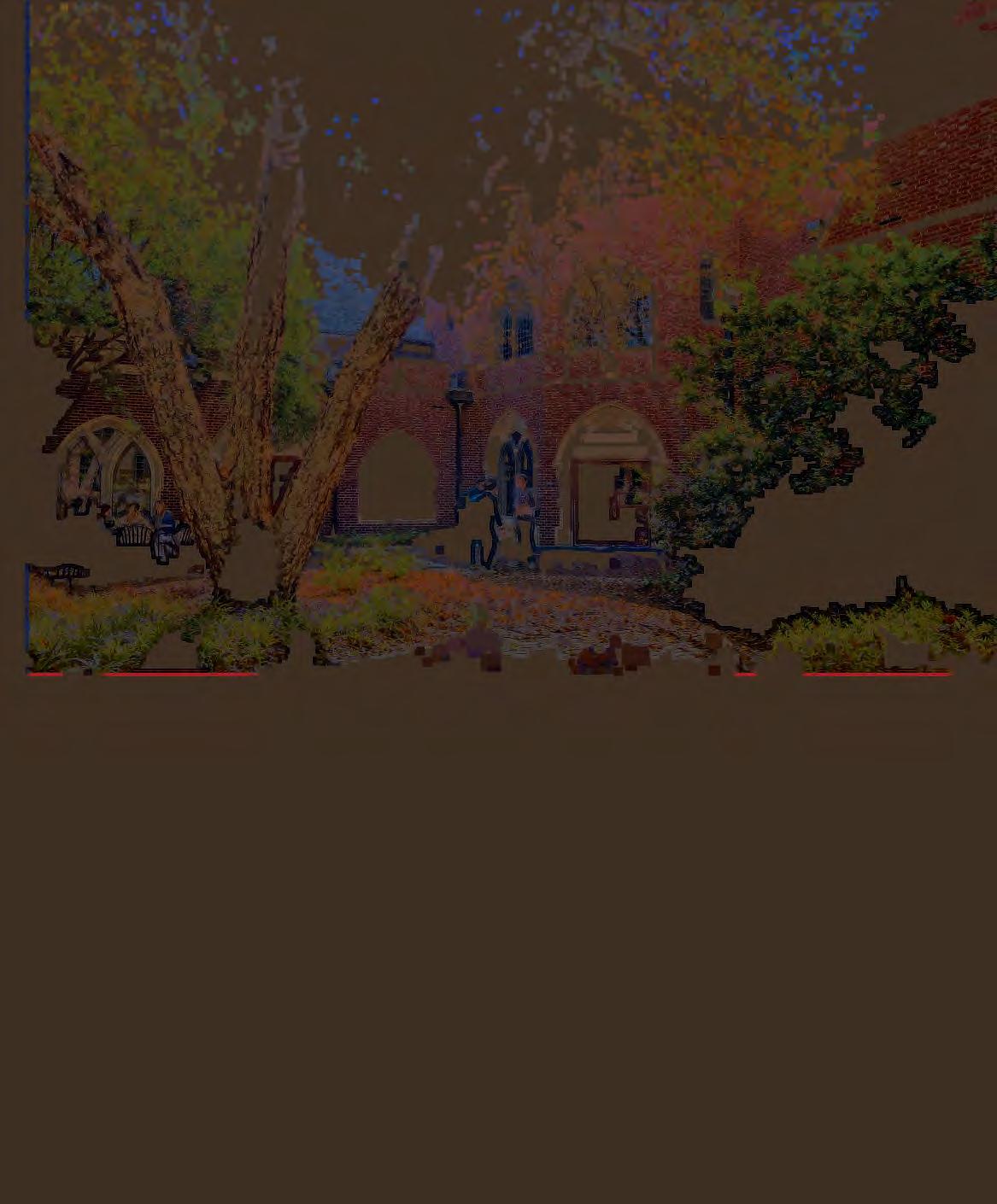

Eye

SILENT SYMMETRY
A recently completed renovation of the law school’s building includes upgrades to the Moot Courtroom that make it increasingly functional for classes and an elegant place for guest speakers and other special events.
Photography by Jamie Betts

DEAN’S LETTER
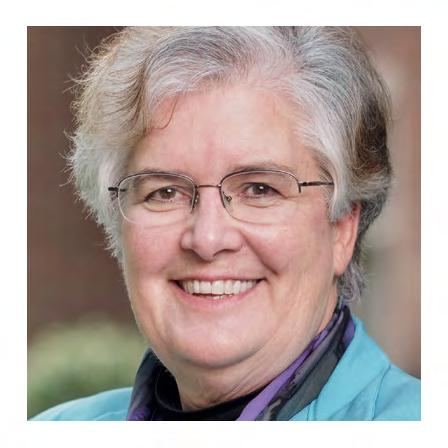
ENDURING VALUES THAT GUIDE US
Dear friends,
At the core of a Richmond Law education are enduring values that guide our work and inspire our community. In this issue of Richmond Law magazine, we highlight three of them: the power of mentorship, a commitment to justice, and ethical responsibility.
You’ll see the impact of mentorship in the story of Lara Ballout, L’27, whose law school journey is supported by a network of mentors — faculty, peers, career advisors, and alumni — each offering unique guidance at critical moments. Our culture of mentorship is one of our greatest strengths, ensuring that students not only succeed in law school, but also feel a deep sense of belonging as they prepare to enter the legal profession.
You’ll also hear from professor Danielle Stokes, ’13, whose teaching, research, and advocacy embody a deep commitment to justice. Through her work on energy transitions and environmental equity, she is ensuring that the communities most affected by climate change and environmental burdens have a voice in shaping the policies that impact their lives.
Finally, we highlight the work of three of our alumni — Joyce Manna Janto, L’89, Nancy S. Kirkpatrick, L’99, and Teresa Miguel-Stearns, L’94 — who are advancing the field of librarianship during this time of rapid technological change. As AI increasingly impacts legal research and the profession, their contributions remind us that adapting to these changes must be grounded in human judgment and ethical responsibility.
These stories remind us that the values that guide Richmond Law are not abstract ideals, but living commitments carried out every day by our students, faculty, and alumni. I hope you are as inspired by them as I am.
Best,
Wendy C. Perdue Dean and Professor of Law
DEAN
Wendy C. Perdue
DIRECTOR OF COMMUNICATIONS AND MARKETING
Renee Russell
ASSOCIATE DEAN FOR DEVELOPMENT AND ALUMNI RELATIONS
Courtney Curry
University Communications
SENIOR WRITER/ EDITOR
Rayne Miller
DIRECTOR OF EDITORIAL
Matthew Dewald
ASSOCIATE VICE PRESIDENT FOR CREATIVE AND DESIGN SERVICES
Samantha Tannich
DIRECTOR OF DESIGN SERVICES
Katie McBride
GRAPHIC DESIGNERS
Ashley Gladner
Gordon Schmidt
CONTACT
lawalumni@richmond.edu
804-289-8028 law.richmond.edu
CHANGE OF ADDRESS
800-480-4774, Ext. 7 lawmagazine @richmond.edu
© 2025 University of Richmond School of Law. This publication may not be reproduced in whole or in part without express permission from University Communications.
Richmond Law 22 22 16
Richmond Law, of which this is Volume 38, Number 1, is produced by the Division of University Communications in partnership with Richmond Law. It is published biannually for alumni and friends of the University of Richmond School of Law, University of Richmond, VA 23173.
COVER Photograph by
Jamie Betts
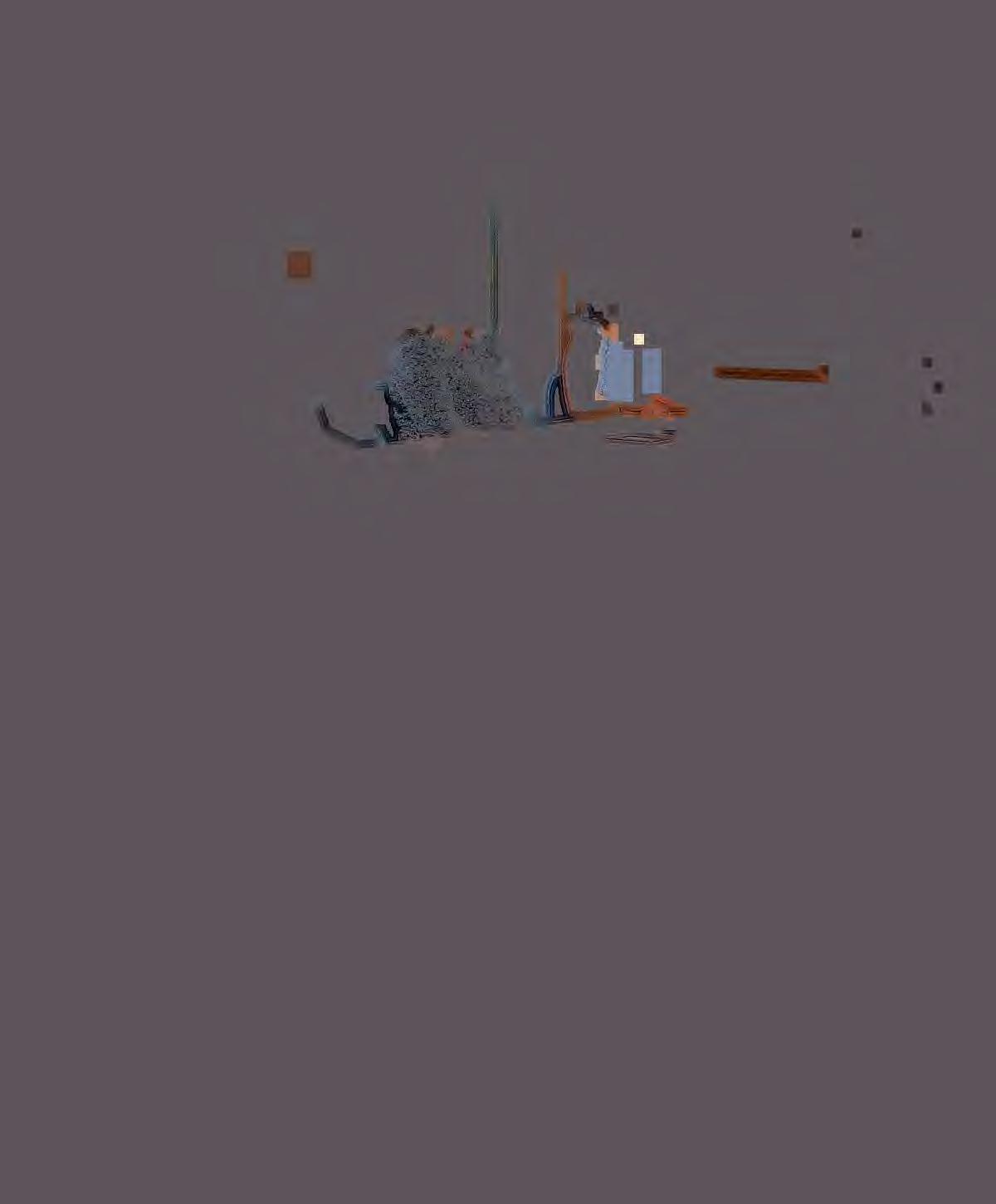
FEATURES
Danielle Stokes and the energy discussion
Associate professor Danielle Stokes, ’13, wears many hats. Some are official, others are self-styled, but all of them are purposeful.
Beyond the page
Three alumni are shaping the next generation of libraries in the burgeoning world of AI
The mentorship web
DEPARTMENTS
For
Dontaé Bugg, L’06 4 28 30 12
In her first year of law school, Lara Ballout, ’24 and L’27, was eager to learn, uncertain of her path, and brimming with questions. Everywhere she turned, she found a mentor with an answer.
the Record
Merhige Competition returns after a five-year hiatus.
The Professional Identity Formation class draws inspiration from the university’s museums.
See what faculty are reading, watching, and listening to in their spare time.
Faculty Notes
Riley Keenan is focused on the frameworks of constitutional decisionmaking.
Class Notes
Benedict Roemer, L’25
» NAMESAKE
The Hon. Robert R. Merhige Jr. was a 1942 graduate of Richmond Law who led a distinguished career in the bar and on the bench. He was appointed to the U.S. District Court for the Eastern District of Virginia in 1967 and served on the bench for more than three decades, deciding a number of controversial cases.

Merhige Competition returns
After a five-year hiatus, the School of Law revived the Merhige Environmental Negotiation Competition in the spring. The return was driven by the recently formed Negotiation and Alternative Dispute Resolution Board.
The NADR Board, created from the merger of the Alternative Dispute Resolution Board and the Client Counseling and Negotiations Board, spent the past two years rebranding and expanding its presence at Richmond Law. The relaunch of the Merhige Competition was a key part of this effort.
“Law school teaches us so much about adversarial processes — litigation, trials, winners, and losers,” said Keshav Agiwal, L’25 (above, far left), who organized the competition with Spencer Hamilton, L’26 (above, far right). “But negotiation and alternative dispute resolution are just as essential and often overlooked. This competition gave participants a chance to experience what legal collaboration can look
like when it’s done well.”
Held over three days during the spring semester, the competition welcomed 16 teams from 10 law schools across the country. The event kicked off with a Friday evening mixer
“Negotiation and alternative dispute resolution are essential and often overlooked.”
designed to build camaraderie among the visiting teams. Saturday and Sunday featured multiple rounds of negotiations built around evolving case problems. Each team of two students was paired against another, with each side advocating for different clients
in a simulated legal scenario.
Feedback from visiting participants was overwhelmingly positive.
“Every aspect of the competition ran smoothly and left me with a highly favorable view of [the university] in general,” said one competitor. Another shared, “Everyone was so hospitable, kind, organized, and accommodating. We never felt out of the loop or lost. … We enjoyed the mixer, love the merch, and just appreciate everyone’s good vibes.”
The Merhige Competition was last scheduled for 2020 but was canceled due to COVID-19. With its last run in 2019, this year marked a longawaited return.
“It’s been nearly two years of planning,” Agiwal said. “Bringing this back was not just about hosting an event — it was about restoring a tradition and creating a meaningful opportunity for law students nationwide to explore the power of negotiation.”
by Maggie
In His Honor’s honor

Earlier this year, Henrico County honored retired Circuit Judge L.A. Harris Jr., L’76, with a surprise announcement that the Henrico County Courts Building has been named in his honor. The news came during a ceremony honoring his 37 years of service as a judge in the county.
“It’s our privilege to announce this court building, in which you wielded the gavel with distinction and dedication for more than a generation, will be getting a new name,” said Dan Schmitt, chair of the county’s board of supervisors. “From now on this building will be known as the L.A. Harris Jr. Courts Building.”
In a video of the event published by Henrico County, the crowd
audibly gasped and then loudly applauded when the announcement was made. Former Virginia Govs. L. Douglas Wilder and James S. Gilmore also delivered tributes to Harris.
When it came Harris’ time to speak, he described the honor as “totally overwhelming. I can’t express my words.” He also recalled a statement he made just before becoming a judge in 1988: that he hoped to bring to the court a good temperament and fairness to everybody.
“If I’ve been able to halfway accomplish both of those, then I’ve got nothing to complain about,” he said.
The courts building is home to the county’s Circuit and General District courts as well as the Circuit Court clerk’s office.
EMERGING LEGAL MINDS
Richmond Law hosted its annual Junior Faculty Forum in May. The event brought together more than 40 rising legal scholars representing 28 law schools across the country.
Since its inception in 2017, the forum has been a dynamic platform for over 300 early-career academics to present their scholarship, receive constructive feedback, and build connections with peers in the legal academy.
IMPACTFUL SCHOLARSHIP
In her article “Paying for Performance?
Attorneys’ Fees in Securities Fraud Class Actions,” professor Jessica Erickson and her co-authors compare cases led by toptier firms and those led by lower-tier firms, asking whether either set obtains better outcomes for shareholders. In other words, how much do the plaintiffs’ lawyers matter?
According to Corporate Practice
Commentator, “Paying for Performance?” matters significantly as a piece of legal scholarship. The Commentator, which annually polls corporate and securities law professors, named Erickson’s article one of the Top 10 corporate and securities articles of 2024. Erickson’s article was published by the Journal of Empirical Legal Studies
NAWL award for Carico
ACCOLADE The National Association of Women Lawyers named Rebekah Carico, L’25, a 2025 Outstanding Law Student.
The award is presented annually to one student in the graduating class of each ABA-approved law school. It honors students who contribute to the advancement of women, promote issues and concerns of women in the legal profession, and achieve high
academic standing, among other accomplishments.
Carico served on the Richmond Women’s Law Executive Board for three years.
“This allowed me to invest both in my law school community and the Richmond community at large by facilitating programs for young women lawyers,” she said.
Professor Joel Eisen, an expert on energy law and policy, also received significant recognition for recent scholarship. Vanderbilt Law School and the Environmental Law Institute named his article “Utilities With Purpose,” co-authored with Heather Payne of Ohio State’s Moritz College of Law, one of the five best environmental law articles of 2024.
The article describes why large, investor-owned utilities’ ESG commitments “fall short of supporting the clean energy transition.” It argues for “converting utilities’ voluntary promises into enforceable commitments” through changes to their corporate charters.
When media outlets cover news and events, they come to Richmond Law for expertise and perspective. Here’s a sample of recent stories that feature our experts.
Constitutional law expert CORINNA LAIN was interviewed on the podcast Throughline during its episode “We the People: The Right to Remain Silent.”
During the interview, Lain explained the complexities of the Fifth Amendment, highlighting historical cases and the Supreme Court’s role in enforcing Miranda rights.
MILESTONE
25 years of leadership
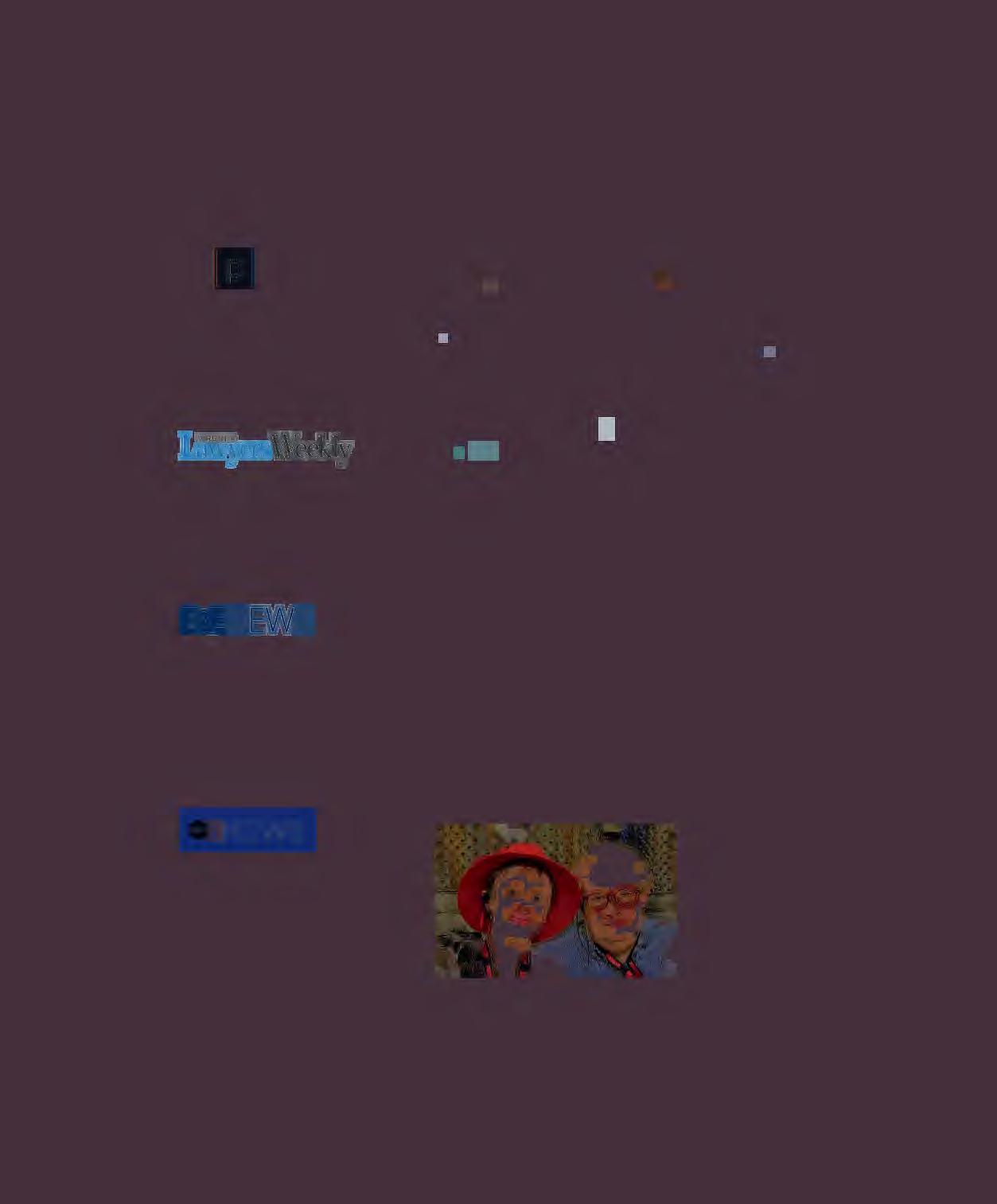
TARA CASEY , a member of the Virginia State Bar’s Access to Legal Services Committee, was quoted in “Bar Applauds Expansion of Emeritus Bar Eligibility.”
Casey said she is “very heartened by the Supreme Court of Virginia’s adoption of the amendments to the emeritus rule.”
JOEL EISEN , an expert on environmental law, was interviewed in “The Truman-era Law Giving Environmental Lawyers Hope,” which discusses the Administrative Procedure Act — a 1946 law that governs how federal rules are written. “When it comes to something that is challenged under the APA, the court has explicitly said that kind of action still survives,” he said Eisen.
Challenge complete LawyersWeekly
CASSIE POWELL, L’16 , an expert on benefits, was interviewed in “‘On the Verge of Eviction’: Hopewell Mother Waiting for Disability Benefits, Launches Small Business.”
She explains how it is not uncommon for people filing disability claims to be denied.
“Most of the time, people are not approved right away — and they have to then appeal, and then appeal [again,] and go through several appeal stages, [all] for them to potentially be approved or eventually denied,” she said.
The bar exam can feel like an overwhelming final challenge for graduating students. But for the past 25 years, professor Emmeline (Emmy) Reeves has been a steady guide through this time for Richmond Law students as leader of the school’s Bar Preparation Program.
“Supporting our graduates — both academically and emotionally — as they tackle the final hurdle to licensure and seeing their joy and pride upon being admitted to the bar has
PHILANTHROPY
been such a rewarding experience for me,” Reeves said.
With her leadership, the program has expanded to include multiple for-credit courses, additional faculty, a summer intensive, and a number of other programmatic offerings to meet the needs of students.
“I’m so grateful that the law school provides substantial resources to support our graduates during this critical process,” she said.
During Giving Day in April, Doug, R’77 and L’80, and Melissa Callaway deepened their commitment to Richmond Law with a $25,000 pledge aimed to inspire fellow law alumni to also give. Their leadership through the challenge helped rally nearly 200 Law Spiders,
who collectively raised more than $110,000 to support students.
Doug, a proud double Spider, credits much of his success in his legal career to Richmond Law. Since graduating, he has been a consistent and enthusiastic supporter, believing deeply in the importance of supporting future generations of lawyers.
“I choose to give back because the education I received at the University of Richmond — both as an undergraduate and in law school — placed me in a position to build a successful legal career,” he said. “I want to ensure that future law students have access to the same opportunities and support.”
A helpful resource
IN PRACTICE Richmond Law’s IPT Clinic empowers student attorneys to advise local businesses.
The Grass Spot’s Hannah and Zach Norris (below right and left, respectively) have made a mark in the music industry with their vibrant, whimsical designs and fullscope media services. But as artists and small business owners, they lacked the budget for legal services to protect their hard work.
Thanks to their partnership with Richmond Law’s Intellectual Property and Transactional Law Clinic, the duo now has the resources they need to succeed.
One of the law school’s four in-house clinics, the IPT Clinic collaborates with local entrepreneurs, nonprofit organizations, and independent businesses to provide free advice and assistance with transactional matters such as establishing a business, trademark and copyright registration, and drafting and reviewing contracts.
“The clients we target are ones who could not otherwise afford legal services,” said Ashley Dobbs, L’05, clinic director since 2015. “We help them understand what they can and cannot do, how to protect their brand identity, and how best to monetize it.”
The IPT Clinic is a teaching law firm where student attorneys work directly with clients under Dobbs’ supervision, allowing them to develop real-world skills and hands-on experience that build upon and reinforce their coursework.
Emma Silverman, L’25 (below middle), joined the clinic during her second year of law school and participated for three consecutive semesters. “The unique thing about the clinic is that you are in charge of your own project and have face-to-face time with clients right off the bat,” she said.
“At a private firm, you may never get to meet the clients. It really pushed me to engage more with my communication and critical thinking skills.”
Upper-level student attorneys are encouraged to bring on a client of their choice. In 2024, Silverman reached out to the Norrises — Zach is Silverman’s cousin — about working with The Grass Spot.
“We were excited when Emma approached us — not only because she’s brilliant, but she knows our business,” Hannah said. “I’m an artist and designer, so legal work doesn’t come naturally to me. Having Emma and her team assist us has been very helpful.”
Zach said Silverman’s counsel has strengthened his business’ legal footing.
“I had been drafting our contracts and partnership agreements on my own because we couldn’t afford legal oversight,” Zach said. “Working with the IPT Clinic has eased our worries about any potential liabilities.”
Silverman is now working in the business sector for Hirschler but hopes to continue volunteering with the clinic and providing legal support to The Grass Spot as needed.
“I hope to return to the clinic using pro bono hours from my firm to engage with students and show them how they can use their knowledge to help the community,” she said.
Kyra Molinaro

The IPT Clinic is one of four in-house clinics at Richmond Law. The others are the Jeanette Lipman Children’s Defense Clinic, the Institute for Actual Innocence, and the Access to Justice Clinic. In each of them, students work on real legal matters for real clients, under the supervision of law school faculty members.
Portraits of a profession
Richmond Law’s Professional Identity Formation class recently stepped outside the classroom and into UR’s Harnett Museum of Art to explore professional identity.
Through the Museums+ initiative, professor Janice Craft collaborated with museum staff to tailor an installation for PIF students. The exhibit was designed to provoke deep, personal inquiry and challenge students to consider not only who they want to be as lawyers, but also who they want to be as people.
“Legal texts, especially in the first year, often train students to think in abstract, detached terms,” Craft said. “The experience of art, on the other hand, is deeply personal. It forces a personal response ... and that opens the door to a kind of self-inquiry that a casebook doesn’t often invite.”
That invitation resonated deeply with Zachary Braswell, L’27.
“In law school, I often find myself focused on performance, precision, and logic,” he said. “The art exhibit, however, asked me to reflect inwardly on my values, experiences, and motivations, and it inspired me to become a lawyer that is not just intellectually skillful, but also emotionally aware.”
For Delayna Major, L’27, the experience underscored

the individuality of interpreting art. She and three classmates came away with varying interpretations after analyzing the same image.
“While I interpreted the piece as a foreshadowing of the challenges of maneuvering through a competitive environment like law school, one of my classmates regarded the piece as a celebration of the value of collaboration in overcoming shared obstacles,” she said. “Although we all underwent a shared experience as first-year law students, ... the unique experiences that molded us as individuals leading to law school and supporting us through the process continue to shape our identities and our perspectives of these shared experiences.”
Having intended only a one-time collaboration through the Museums+ initiative, Craft now envisions more iterations for her future PIF courses.
“It’s important to me to always emphasize the twin themes of agency and accountability in professional identity formation,“ Craft said. “Only the student can decide who they’re going to be as a lawyer, but they’re never making those decisions in a vacuum. They are accountable to others and to the demands and responsibilities of the legal profession.”
by Maggie Graff
Alum wins Marshall Award
The Oklahoma Criminal Defense Lawyers Association named MaryAnn Grover, L’19, the recipient of its 2025 Thurgood Marshall Appellate Advocacy Award.
The award recognizes “outstanding appellate advocacy in the spirit and in the footsteps of the great attorney, judge, and justice.”
PRO BONO

Grover is deputy division chief of the Appellate East Division at the Oklahoma Indigent Defense System.
In a post on LinkedIn about the announcement, she reflected on the role her parents played in the trajectory of her career.
“They taught me the necessity of fighting for the forgotten and the damaged and recognizing the humanity of each person,” she wrote.
“They taught me everyone is more than the worst thing they’ve done.”
‘Your little bit of good’
AROUND THE SCHOOL
Approximately 20% of the Class of 2025 earned the school’s pro bono certificate, a recognition of the recipients’ commitment to service. Collectively, they contributed more than 4,000 hours of service.
“These hours represent the determination of our clinical students to not just ‘peace out’ at the end of the semester, but to continue working on the cases in which they had invested so much of themselves,” said Tara Casey, director of the Carrico Center for Pro Bono & Public Service.
Graduates who earned the certificate dedicated at least 120 hours to pro bono work during law school.
Bures, L’15, pro bono director at Troutman Pepper Locke, told recipients at a ceremony that pro bono work offers them skill development, legal experience, and sometimes business development.
“But lawyers shouldn’t do pro bono because there’s something in it for them,” she continued. “Lawyers should do pro bono because it’s part of their professional responsibility.”
Casey summed up her thinking with a quote often attributed to South African Bishop Desmond Tutu: “Do your little bit of good where you are. It’s those little bits of good put together that overwhelm the world.”
SUPPORT’S ROLE SHOWS
When Joe Probus, a U.S. Navy veteran, took his law degree in hand at the 2025 commencement ceremony, he was also taking the next step in his continued service. His plan is to develop a career practicing veterans’ law.
“I have seen firsthand how challenging it can be for veterans to navigate the complex and costly process of accessing the benefits they’ve earned,” he said. “I hope to use my legal skills to advocate for them and help secure the support they deserve.”
Several donor-funded programs helped prepare him. The first was the scholarship he received to attend Richmond Law.
During his 1L summer, a fellowship grant supported his internship with the Division of Licensure and Regulatory Services. In summer 2024, he participated in the Richmond Law Cambridge Summer Program, experiencing European culture for the first time while learning comparative law.
He said that opportunities like these equipped him with the tools he will need.
“My journey to law school — and the invaluable hands-on experience I’ve gained along the way — wouldn’t have been possible without donor support,” he said.
NICELY DONE
Richmond Law’s recent renovation received top honors from the Greater Richmond Association for Commercial Real Estate. The association awarded the project its top prize for institutional projects during its 2025 awards ceremony.
The $27.5 million renovation, completed in August 2024, reimagined the law school building as a modern, welcoming environment.
“We are delighted to now have an award-winning facility, and in the end, it’s really our students who win,” said Wendy Perdue, dean.
“And then my guilty pleasure: binge-watching British murder mysteries on BritBox.”
—WENDY PERDUE
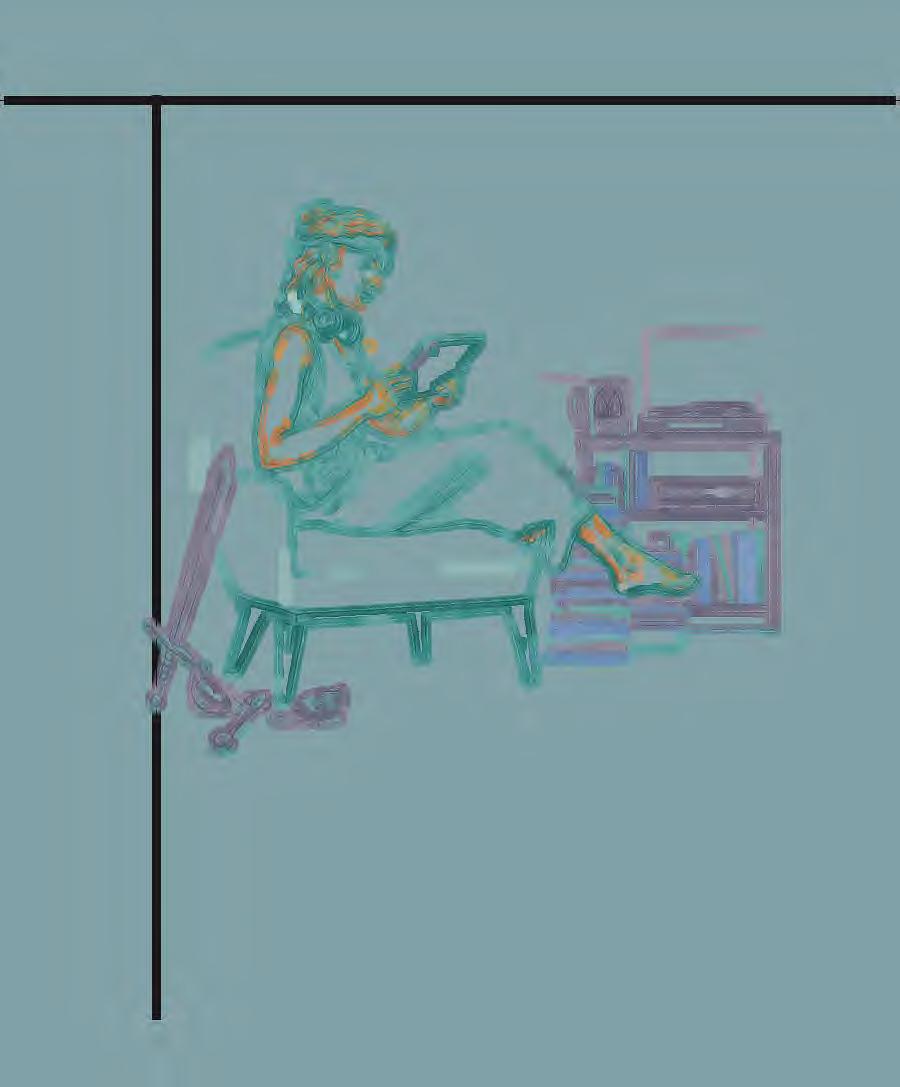
SIDEBAR
WHAT ARE RICHMOND LAW FACULTY READING? OR WATCHING? OR LISTENING TO?
Ever wonder what’s captivating Richmond Law faculty when they’re off the clock? From gripping historical reads to binge-worthy streaming picks to insightful podcasts, here’s what’s capturing their attention outside of the classroom.
LISTENING
DANIELLE STOKES THE PIVOT PODCAST
“This is my favorite thing to listen to right now. I am not a huge sports fan, but the show allows me insight into the sports realm while also learning the why behind folks’ stories. I appreciate the comedy, vulnerability, and real-life discussions that take place.”
by
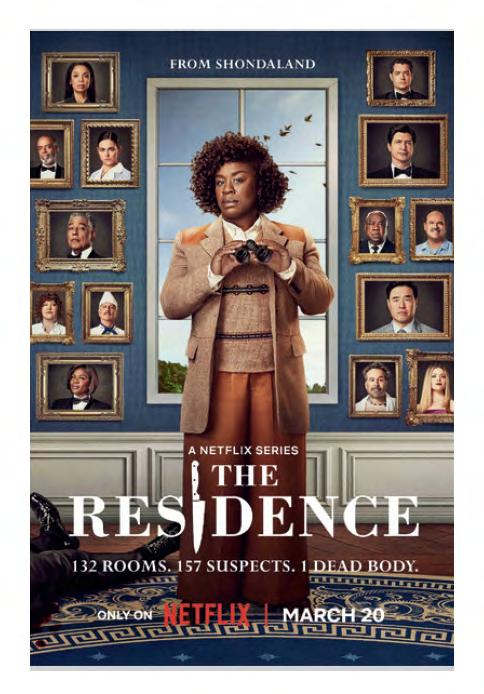


WATCHING
CAROL BROWN
THE RESIDENCE (NETFLIX)
“I highly recommend The Residence, which is on Netflix. When Detective Cordelia Cupp, a consulting detective for the Washington, D.C., Metropolitan Police Department, is called in to investigate a complex murder at the White House during a state dinner, her sharp mind, offbeat charm, and birdwatching quirks make every scene she’s in completely captivating. I loved binge-watching the show because Uzo Aduba’s portrayal brought depth and intrigue to Cupp, whose fearless, observant nature and unconventional methods made the mystery feel intelligent and truly engaging.”
CORINNA LAIN
THE HISTORY OF COMEDY (NETFLIX)
“This docuseries uses archival footage and interviews to explore not just what makes us laugh, but how comedy has shaped society. I love how each episode has a different theme, and it’s fun to see clips of these old shows that I watched growing up and consider them in their larger social and political context.”
READING
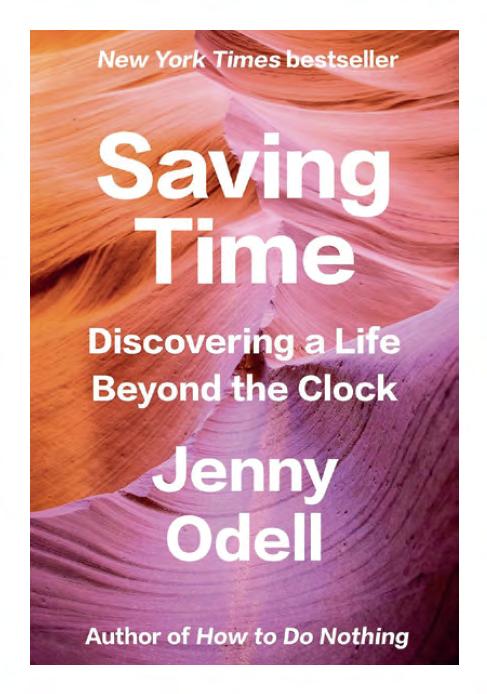
ASHLEY DOBBS
SAVING TIME: DISCOVERING A LIFE
BEYOND THE CLOCK BY JENNY ODELL
“This is a deep dive into the fundamental structure of time in our society and how it developed around corporate profits. What can I say?
I’m a recovering big-firm lawyer, and I think a lot about how the billable hour culture at law firms continues to impact lawyer well-being. I like reading things that help me think about time and productivity another way so we can uncover or create better systems for our future lawyers, both wholesale revolutions and incremental shifts from inside the system.”

THE FATE OF THE DAY
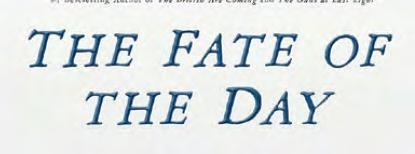
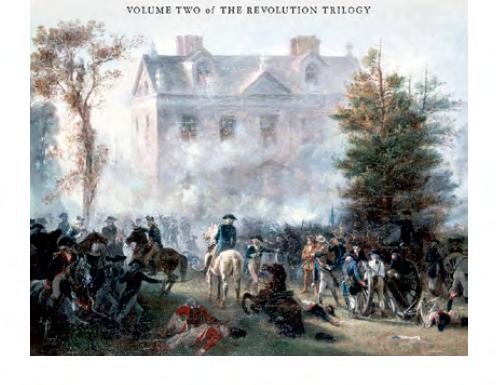
JOEL EISEN
THE FATE OF THE DAY BY RICK ATKINSON
“I’m deep into the second volume of historian Rick Atkinson’s trilogy on the Revolutionary War, The Fate of the Day. It’s a gripping narrative that covers the middle years of the war, from the loss of Fort Ticonderoga to the stirring victory at Saratoga that brought the French into the war on our side and continues to the battles in New Jersey and South Carolina in 1780. The level of detail brings this pivotal era vividly to life.”
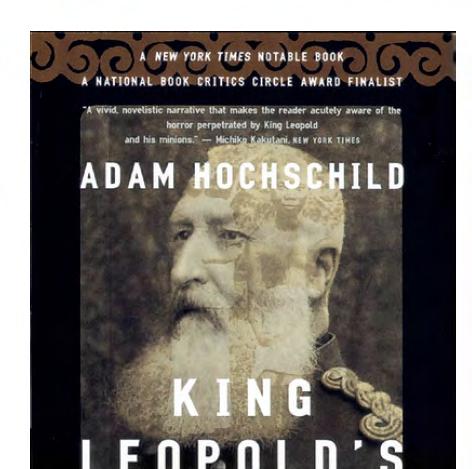
JIM GIBSON
KING LEOPOLD’S GHOST BY ADAM HOCHSCHILD

GHOST What Universities Owe Democracy

“This is an eye-opening history of the Belgian colonization of the Congo for which the term ‘crimes against humanity’ was invented. It’s fascinating — but more than a bit horrifying. Highly recommended for history buffs.”
WENDY PERDUE
WHAT UNIVERSITIES OWE DEMOCRACY BY RONALD J. DANIELS
“The book offers a history of higher education in the U.S. and makes a compelling case that a core function of a college education should be to reinforce the knowledge, values, and skills that are foundational to a liberal democracy built on the rule of law. A fascinating read, especially as I reenter the classroom this semester … and then my guilty pleasure: binge-watching British murder mysteries on BritBox.”
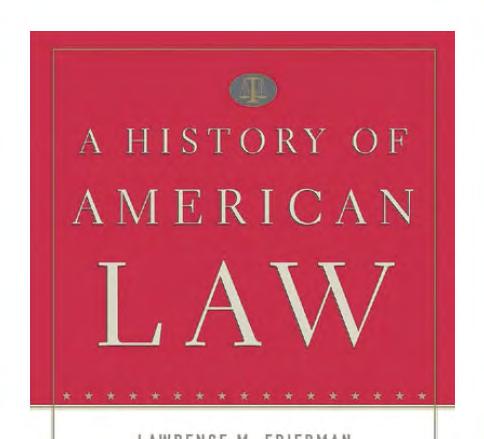

NOAH SACHS
A HISTORY OF AMERICAN LAW BY LAWRENCE M. FRIEDMAN
“I’m loving Friedman’s stories of how law works on the ground, covering everything from saloon fights in the Old West to the creation of no-fault divorce in the 1970s. There’s so much more to the American legal system than appellate cases!”
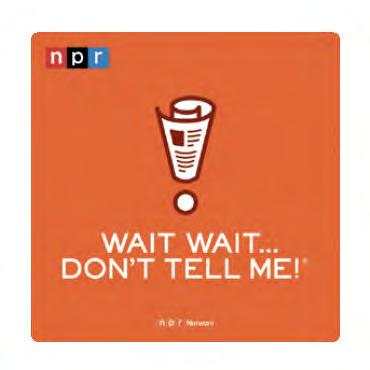
« EVER BEEN TO SEBORGA?
For a brief segment, one faculty member was the media. Professor Tara Casey played Wait Wait ... Don’t Tell Me’s “Bluff the Listener” challenge during an August episode of the NPR show. She won, correctly guessing that “Seborga” is the name of a fictional country that a man in India claimed to represent as its ambassador.

DANIELLE STOKES AND THE ENERGY DISCUSSION
BY RAYNE MILLER | PHOTOGRAPHY BY JAMIE BETTS
In her office at Richmond Law, associate professor Danielle Stokes, ’13, wears many hats. Some are official, others are self-styled, but all of them are purposeful.
Stokes teaches property law, environmental law, and environmental justice courses. She mentors law students, undergraduates, and campus groups. She sits on universitywide committees, collaborates across disciplines, and organizes conferences with national reach. Amid it all, she’s quietly building a body of scholarship that could redefine the legal landscape of renewable energy development.
It’s a heavy lift. But for Stokes, it’s deeply personal.
“I want to see the world in the way it could be,” she says. “Striving for an ideal — that’s my why.”
A SCHOLAR IN PLACE
Stokes is an undergraduate alumna of the University of Richmond, a fact that infuses her work with a sense of loyalty and history. “I’m from rural Virginia,” she says. “Coming here as an undergrad, I was overwhelmed. It was a major shift — academically, socially, personally. But those years were some of the most defining of my life.”
That perspective grounds her now as a professor at Richmond Law. She remembers what it felt like to be stretched in new ways. She remembers the professors who

knew her name, who told her when her work wasn’t her best, and who showed her what it meant to belong even when she felt out of place.
Today, she’s paying it forward — not just in the classroom, but across the institution. She serves on sustainability initiatives and has facilitated a campus women’s group through the Hub for Student Inclusion and Community, aiming to support Black women navigating university life. “I was part of that group when I was a student,” she says. “Leading it was a full-circle moment.”
Although Stokes is often labeled an environmental law professor, she sees her work through a different lens: land use.
“ I WANT TO SEE THE WORLD IN THE WAY IT COULD BE. STRIVING FOR AN IDEAL — THAT’S MY WHY.”
“People hear ‘environmental law’ and think about the Clean Air Act, the Clean Water Act, the big federal statutes,” she explains. “But I’m more focused on how we use land — how local and state decisions shape energy development and environmental outcomes. That’s where law meets place, and that’s where justice issues get real.”
Her courses, including Environmental Justice and Property, explore these intersections head-on, and she’s adamant about connecting classroom theory to the outside world. Her students don’t just read about justice — they see it in action.
In recent semesters, she’s taken students to explore solar panels atop a local high school, partnered with the Science Museum of Virginia to explore community-led air quality monitoring, and invited county sustainability officers to discuss their policies. “Students need to understand that these decisions aren’t made in a vacuum,” she says. “People live with the outcomes. That’s why we have to ask: Who’s being heard, and who’s being left out?”
THE JUST TRANSITION PROJECT
These questions are at the core of Stokes’ research and her most recent collaborative project: Just Transitions and Place.
The project — a multistate, interdisciplinary grant effort — examines how energy policy intersects with local communities in Pennsylvania, Louisiana, Kansas, and Florida. Alongside geographers, planners, and legal scholars, Stokes studied not just where renewable energy projects are being built, but how those locations are chosen — and what it means for the people who live there.
The project reveals a frustrating pattern: Even as solar and wind power expand, many of the same injustices of the fossil fuel era are being repeated. Pollution burdens disadvantaged communities disproportionately. Underrepresented voices still struggle to access the decision-making process. Land use laws often hinder equitable energy development. And technical conversations about grids and siting rarely include discussions of justice.
That’s where Stokes wants to intervene — not by fighting the transition, but by shaping it to be smarter, fairer, and more responsive to real communities.
In March 2024, Stokes brought these ideas to life with a groundbreaking event: Managing a Just Transition, a works-in-progress colloquium hosted by the school’s Robert R. Merhige Jr. Center for Environmental Studies.
Held at Richmond Law, the daylong event brought together scholars, policy experts, and practitioners to tackle the complexities of energy justice. It wasn’t a typical academic conference. It was something deeper.
“I wanted to create a space that was collaborative, not performative,” Stokes says. “We had grassroots organizers, engineers, lawyers, scholars. We talked about real projects, real challenges, and real opportunities to make this transition just.”
The morning panel featured professionals hard at work in those areas from multiple angles, from nonprofit movements to on-the-ground energy grid management. The afternoon session shifted gears, allowing participants to workshop current research and emerging ideas. Each presenter tackled a different thread of energy justice — from how AI impacts energy grids to rural access, from legal frameworks to climate equity.
“It was the kind of exchange that reminds you why scholarship matters,” Stokes says. “We’re not just theorizing. We’re contributing to how these policies get written, how these systems get built.”
The participants included faculty, students from the law school and undergraduate environmental programs, and members of the community. Stokes emphasizes that keeping the event accessible was crucial.
“I didn’t want this to be academic gatekeeping,” she says. “Environmental justice is everybody’s business.”
THE COMMUNITY VOICE
At the heart of Stokes’ work is a deceptively simple premise: laws shape land, and land shapes lives. If we want a cleaner energy future, we must ask who is setting the terms — and who’s left navigating the consequences.
“I’m fascinated by the legal frameworks that structure our decisions,” she says. “Why is this solar farm built here? Why does this neighborhood get upgraded infrastructure while another is ignored? Those answers live in zoning laws, property codes, public hearings. That’s where law and justice meet.”
“Community engagement is central,” she says, “not just because it’s fair, but because it makes projects better. Local knowledge, lived experience — those are forms of expertise. But too often, our property laws don’t make room for that kind of input.”

Often, those spaces are inaccessible to many of the people most affected by decision-making. Public hearings happen when people are at work. Permit applications require resources and legal literacy. Regulations are written in ways that prioritize speed or scale over equity.
Stokes is working to change that — not by slowing the energy transition, but by deepening it. A just transition, in her view, is one that builds relationships as well as infrastructure.
“We talk about solar farms as if they’re just panels on land,” she says. “But if we think about them as community members — something that contributes to the place where it lives — we have to think differently. That’s the shift I’m interested in.”
Even with all of this work, Stokes still sees the classroom as her primary sphere of influence. “What happens in class shapes how students see the profession,” she says, “and how they see their own power.”
She’s conscious of how her presence carries meaning for students. “Sometimes it’s not what I say,” she reflects. “It’s how I show up in the world and in the profession. That’s part of the lesson.”
She makes the most of her platform. Her environmental justice course combines doctrinal learning with community engagement. She encourages all students to question assumptions and to see law as a tool — not just for winning arguments, but for improving lives.
She’s also closely connected with the PPEL (Philosophy, Politics, Economics, and Law) undergraduate program, of which she’s an alum, and now serves on its advisory board. “The program was just starting when I was a student,” she says. “To come back and support it now feels like another full-circle moment.”
A RISING STAR WITH ROOTS
In 2023, Stokes was named the University of Richmond’s “Rising Star” nominee for the State Council on Higher Education. It was an unexpected honor — and one that prompted reflection.
“It made me sit down and think about why I care so much,” she says. “Why it matters that I’m doing this work, in this place, right now.”
The answer lies in the blend of past and future. She’s shaped by her rural upbringing, her undergraduate experience at UR, and her deep belief that law can be both precise and humane. She’s motivated by the urgent climate crisis, the complexity of energy systems, and the quiet power of a zoning ordinance or public hearing.
Above all, she’s committed to being the kind of educator, scholar, and community member she once needed — and still aspires to be.
“It’s not just about teaching the law,” she says. “It’s about preparing students to use it well. That means asking harder questions. That means listening more closely. That means showing up.”
And show up she does — at panels, in classrooms, on field trips, in community centers, and across academic disciplines. Her work is expansive, and her presence is grounding.
Energy policy and environmental justice are regular headlines, and Stokes is helping to widen the path, make space for new voices, and build a more inclusive landscape of what’s possible. ■
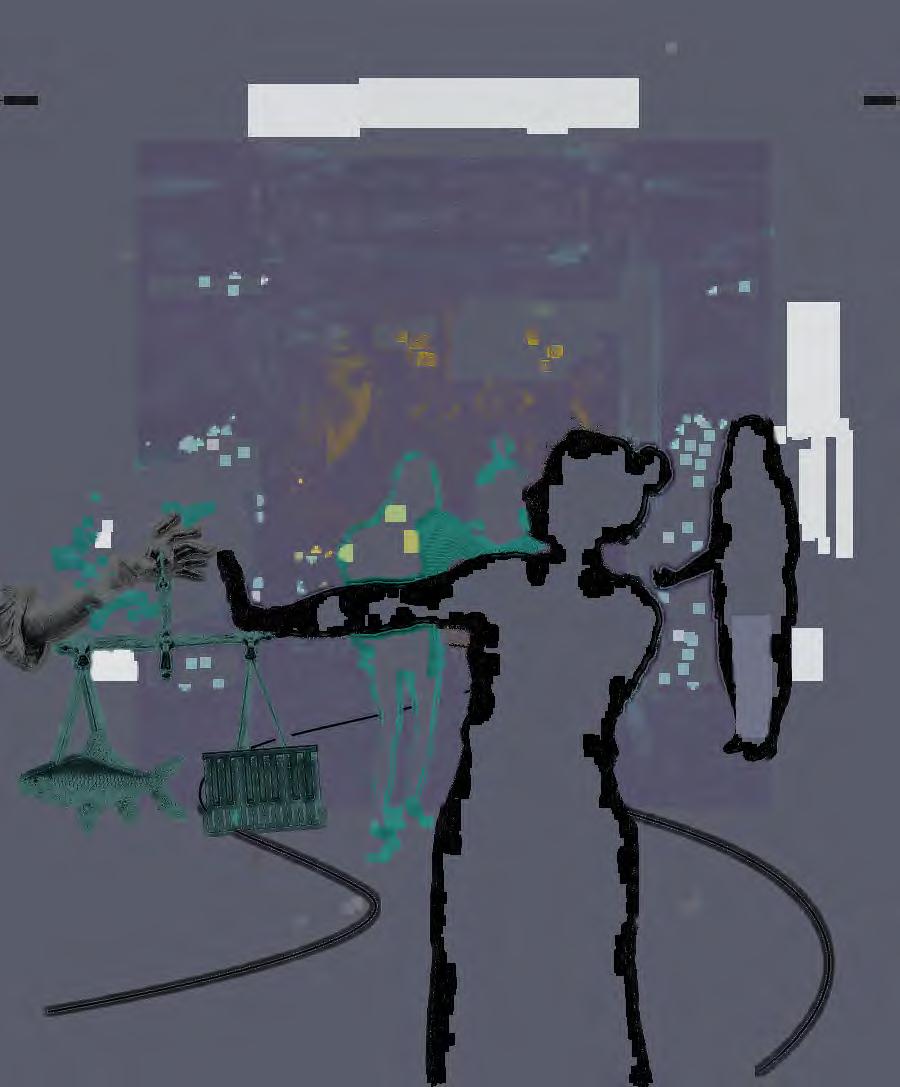
BEYOND the PAGE
How three alumni are shaping the next generation of libraries in the burgeoning world of AI

By Hannah Rainey
McBride
HEN JOYCE MANNA JANTO, L’89, instructs her students to compare their findings about a case to the response of a generative artificial intelligence platform, she’s not just teaching advanced legal research. She’s conducting an effective exercise in the importance of digital literacy. After weeks under Janto’s tutelage, her students can easily trace the path of Levick v. MacDougall from the circuit court to its appellate court decision and subsequent reversal by the Supreme Court in 2017, which set a new precedent about the legality of marriage in Virginia when the ceremony predates the licensure. But when the students ask OpenAI, as well as two legal AI tools provided by LexisNexis and Thomson Reuters, to confirm this legality, the returns raise eyebrows.
“My students were appalled that even the law-based AIs were not giving them the correct answer,” Janto says, explaining how each platform returned a response in line with the overturned appellate court case, ignoring the precedent set by the Supreme Court. But this hands-on activity is one of the best ways for Janto to highlight the importance of understanding the potential pitfalls of new research tools, especially those that could have vast implications for the field of librarianship.
A STANDARD SET BY LAW NO. 5: THE LIBRARY IS A GROWING ORGANISM
Librarianship has always championed growth. It’s one of the five laws of library science, a theory proposed in a 1931 book by S.R. Ranganathan, an Indian librarian and educator respectfully referred to as the father of library science. He described the library as a growing organism that must continually adapt and evolve to best serve its patrons. Over time, libraries across the world have done just that.
As increased automation streamlines much of the cataloging process, librarians are at the forefront of emerging technologies for database management, digitization, and online library service platforms. At the 2025 American Library Association Annual Conference in Philadelphia, a “Top Tech Trends” presentation featured topics like QR codes, e-book licensing, and, of course, AI. These new systems often bring challenges, but librarians are up to the task. In fact, they often serve as patrons’ primary stewards for these advances, making it critical for librarians to understand how these tools work. “Librarians have never been technophobes,” Janto says. She should know — she witnessed this technological evolution firsthand.

“Librarians have never been technophobes.”
—JOYCE MANNA JANTO, L’89
After 43 years in law librarianship, Janto retired in June, stepping away from her roles as faculty member and director of public and instructional services at Richmond Law’s William Taylor Muse Law Library. She held numerous leadership positions with the American Association of Law Libraries during her career, and, in 2023, she received the Marian Gould Gallagher Distinguished Service Award for her outstanding contributions to the field. Her tenure, however, was not without its hurdles.
“When it comes to legislative research, you kids today don’t know how easy you have it,” she writes in a 2016 essay, titled “OMG — The Internet Is Amazing.” Janto has gained a deep understanding of how emerging technologies influence the research landscape. Over the years, she has navigated fundamental shifts like the introduction of microfiche, a system of storage that condensed lengthy printed materials onto a small piece of film read with a special machine, and digital case “Shepardizing,” a legal citation process using Shepard’s Citations Service to validate the status of cases and statutes over time.
Learning about these tools wasn’t

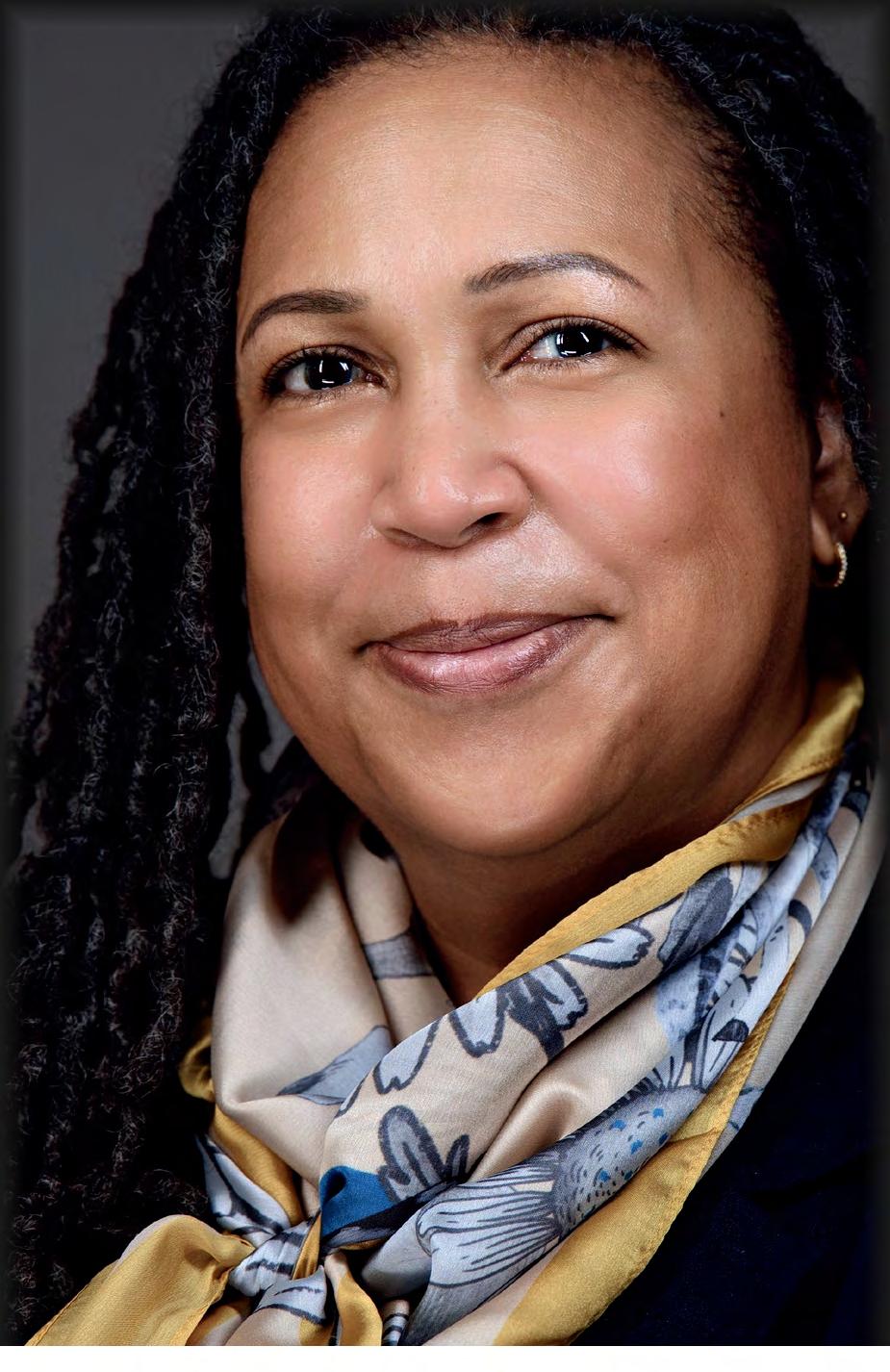
just helpful; it was necessary. “The method of delivering information is going to change constantly. But knowing and figuring out how that [method] works is the real challenge,” Janto says. “That is what librarians do. We figure out how the information delivery system works so that we can deliver the information that our patrons need.”
Never has that been more imperative than with the inception of AI, specifically generative AI, which, still in its infancy, is showing a proclivity to fabricate, or “hallucinate,” information when it cannot find a clear answer. Just before her retirement, Janto received an email from one of Richmond’s own access services librarians: “Well, it’s a first. I just got an interlibrary loan request for an article that’s an AI hallucination.” These instances are proving troublesome for research and information professionals — for now. “Maybe five years from now, that won’t happen anymore,” Janto says.
Unfortunately, the issue is not unique to Richmond. Nancy S. Kirkpatrick, L’99, recently named dean of libraries at Smith College, experienced similar events in her previous role as the dean of university libraries at Florida International University. She’s learned through these trials to view AI as a “trust but verify” situation. “It gives you things that don’t actually exist, but it does it in such a compelling way that if you’re not a savvy researcher, you’re just going to rely on it,” she says.
That’s what makes teaching information literacy, especially digital and AI literacy, so important. “I think it’s just part of our job as librarians,” she says. But when it comes to
“ It gives you things that don’t actually exist, but it does it in such a compelling way that if you’re not a savvy researcher, you’re just going to rely on it.”
—NANCY S. KIRKPATRICK, L’99
educating the masses, Kirkpatrick names a lack of diverse representation, both in public spaces and the staff that run them, as one of the biggest barriers to accessibility.
“If I’m on the South Side of Chicago, and I walk into my library building, and all of the art is 1800s European ... those little things matter. And all of that has implications for who is going to use the space and, therefore, who is able to gain the information literacy necessary,” Kirkpatrick says.
No stranger to championing equity in libraries, both public and academic, the former executive director and CEO of library consortium OhioNet has written extensively on the topic. In “Creating Diversity in Libraries: Management Perspectives,” an article Kirkpatrick co-authored for the Library Leadership and Management journal in 2020, Kirkpatrick and her peers share how hiring and retaining a diverse faculty can help improve information literacy among marginalized communities. This dedication to inclusive leadership strategies is part of what drew her to Smith College.
“What I’m looking forward to at Smith is being part of an institution that was founded on this idea of equity and equality and making sure the voices that hadn’t previously been heard are heard,” Kirkpatrick says. Not only heard, but seen and received, promoting universal access to the kind of information literacy support that makes knowledgeable and ethical use of AI tools, for legal purposes or otherwise, possible. For Kirkpatrick, it all starts with library science education.
WRITING THE NEXT CHAPTER: PATHWAYS FOR A NEW GENERATION OF LAW LIBRARIANS
Teresa Miguel-Stearns, L’94 and a former student of Janto, has taken that sentiment to heart. As the associate dean of legal information innovation and deputy director of the Daniel F. Cracchiolo Law Library at the University of Arizona’s James E. Rogers College of Law, she’s on a mission to increase accessibility not just to the library itself, but to careers in law librarianship. Like Janto and Kirkpatrick, Miguel-Stearns believes the prevalence of AI, especially in the legal sphere, makes librarians and legal information professionals more important than ever.
In 2023, she co-led a roundtable discussion hosted by the University of Arizona about AI and the future of law libraries. The report that followed, which included contributions from several other law librarians from across the country, discussed both the positive and negative impacts AI could have on the field. Ultimately, it highlighted the need for each institution to strike its own balance between increasing efficiency and minimizing the spread of disinformation through generative AI.
In many ways, she says, these technological advancements have increased the need for human intervention during the research process to make sure that all resources, not just the ones accessible to AI platforms, are considered. “It’s put more demand on us as librarians to ensure that our faculty, our students, and our public patrons understand the limitations of the tools they are using,” she says. Because of the novelty of this new technology, it’s easy for students and patrons to forget that there are still hundreds, if not thousands, of analog materials that have never been introduced to an AI program and thus cannot inform its responses.
librarian, fresh faces are few and far between. “Our profession is suffering in numbers,” she says. “We don’t have enough truly qualified law librarians entering the profession and filling the jobs that are opening day in and day out around the country.” Over the last few years, many law libraries have faced dwindling candidate pools and even failed job searches, leading some to loosen their requirements.
In response, Miguel-Stearns began brainstorming alternative pathways to the profession that may make law librarianship more accessible by reducing some of the traditional financial and temporal barriers. In 2023, she co-authored a call to action outlining these new programs and urging other academic administrations to consider similar recourse.
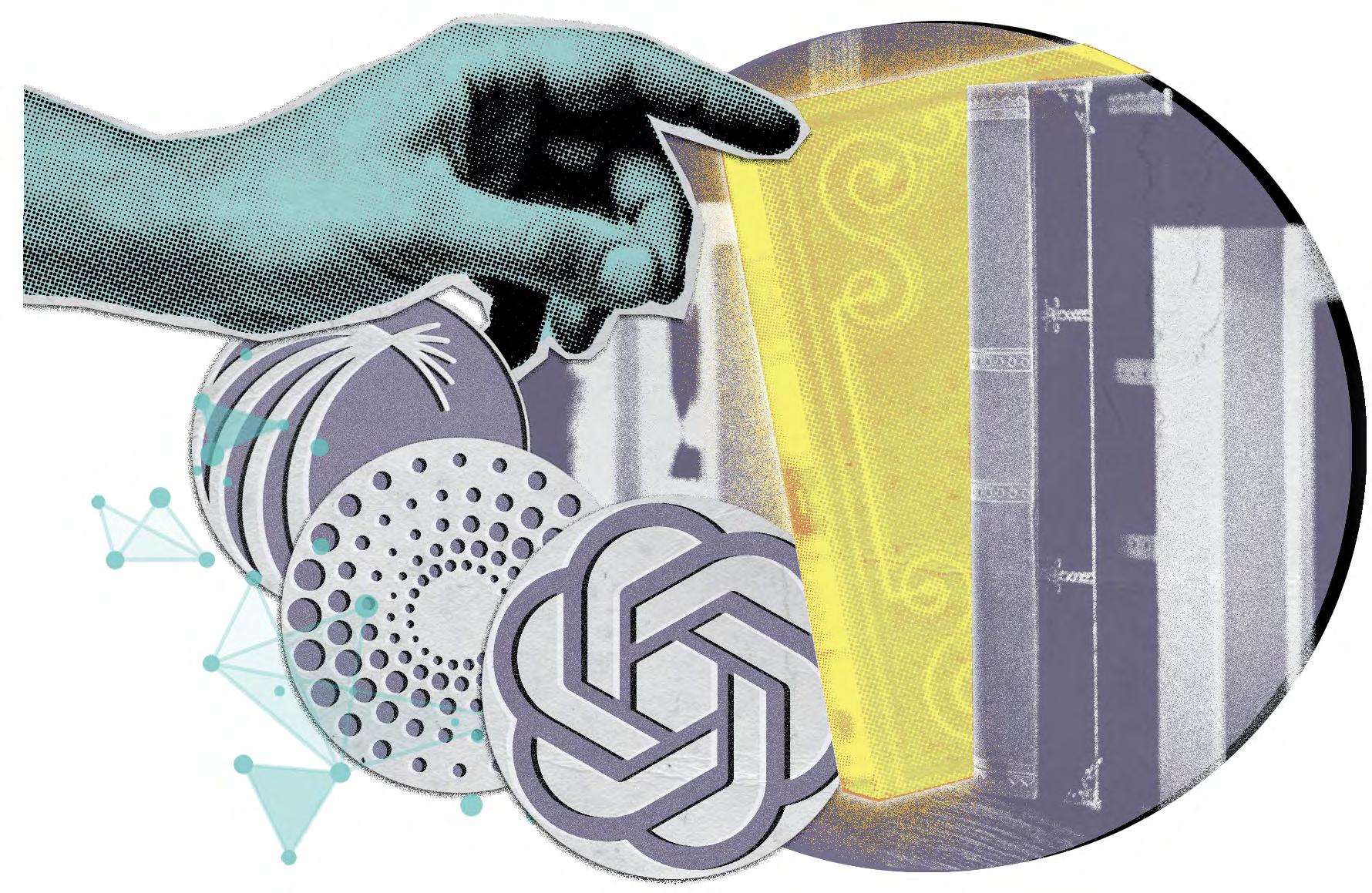
Now, the University of Arizona’s College of Law offers three unique pathways to a career in law librarianship: a dual-degree program for those who wish to graduate with a JD and an MLIS; a second dual-degree option that pairs the MLIS degree with a new Master of Legal; and a Bachelor of Arts in Law with an accelerated MLIS track. All three degrees are offered both in person and online, further broadening their accessibility. These pathways are already making an impact — the first JD/MLIS and MLS/MLIS dual-degree students will graduate from the accelerated programs in 2026.
But Miguel-Stearns is also leading the charge to combat another growing challenge in the industry: With fewer candidates graduating with the traditional combination of Juris Doctor and Master of Library and Information Science degrees, often requisite to get a job as an academic law
In addition to new programs, Miguel-Stearns says, better advertising of law librarianship as a viable career option is crucial to attracting more students to the profession. After almost a decade as a public defender, Miguel-Stearns only considered librarianship after speaking with a friend’s husband, who happened to be an archivist. Once she enrolled in

library school, she fell in love. “And that story is not so different from many law librarians in our field,” she says.
Indeed, Kirkpatrick credits her career to Timothy L. Coggins, the former associate dean for library and information services at Richmond Law, who retired in 2015. “But for his legal research class and then his reaching out to me a few years after I graduated from law school to say, ‘Have you ever considered librarianship?’ I likely wouldn’t be where I am today,” she says.
SHIFTING PERSPECTIVES: REIMAGINING THE ROLE
OF LIBRARIANS
Kirkpatrick has a few ideas about how the field can expand its reach to showcase librarianship as a career option. One of the most effective ways, she says, requires shifting the typical presentation of a librarian beyond the role of a person who simply shelves books.
“What I would love to see is a reimagining of what it means to be a librarian and a definition of librarianship that is much more inclusive of all the amazing things that we do,” Kirkpatrick says. “People don’t think about librarians being everywhere. Corporations have librarians; hospitals have librarians. I have a friend who applied to be the librarian at Rolls-Royce. It’s a job that people don’t think about. … Amazon and Google would not function without people who have master’s [degrees] in library sci-
“ It’s put more demand on us as librarians to ensure that our faculty, our students, and our public patrons understand the limitations of the tools they are using.”
—TERESA MIGUEL-STEARNS, L’94
ences,” she says. “I think we need a good ad campaign. … We need the people who did the ‘Got Milk?’ campaign in the ’80s to come and help us figure out, ‘How do we have that moment?’”
But whether it’s cataloging the latest loan, fact-checking an AI source, or educating students on effective research methods, librarianship is first and foremost a service profession — something all three alumni say makes their jobs extremely fulfilling.
“I think some people enter librarianship without realizing that it is a service profession. But it is,” Miguel-Stearns says. “An exciting part of the profession is helping people. It’s the reward and satisfaction that you get from helping someone track down something that they need for court or that they need for their scholarship, or seeing the light bulb go off above the head of a student who you’re helping, whether it’s in the classroom or one-on-one. If you love intellectually stimulating environments, if you thrive on change, then this is the profession for you.”
For Janto, this connection to the students, faculty, and patrons who frequent the library makes her retirement bittersweet. “The one-on-one, the classes, teaching students — that is absolutely the funnest part of being a law librarian,” she says. Although her teaching days are over, Janto still feels a profound connection to the work she’s done and the academic community she’s built, and her legacy at Richmond Law won’t soon be forgotten. Now, she’s excited to continue serving her community through volunteer work. “It’s been a very rewarding career,” Janto says, “and I’m glad I got to do it at Richmond.” ■
BY AMY OGLE, ’26 | PHOTOGRAPHY BY JAMIE BETTS
TORMENSHIP WEB THE
IN HER FIRST YEAR OF LAW SCHOOL, LARA BALLOUT, ’24 AND L’27, WAS EAGER TO LEARN, UNCERTAIN OF HER PATH, AND BRIMMING WITH QUESTIONS. EVERYWHERE SHE TURNED, SHE FOUND A MENTOR WITH AN ANSWER.
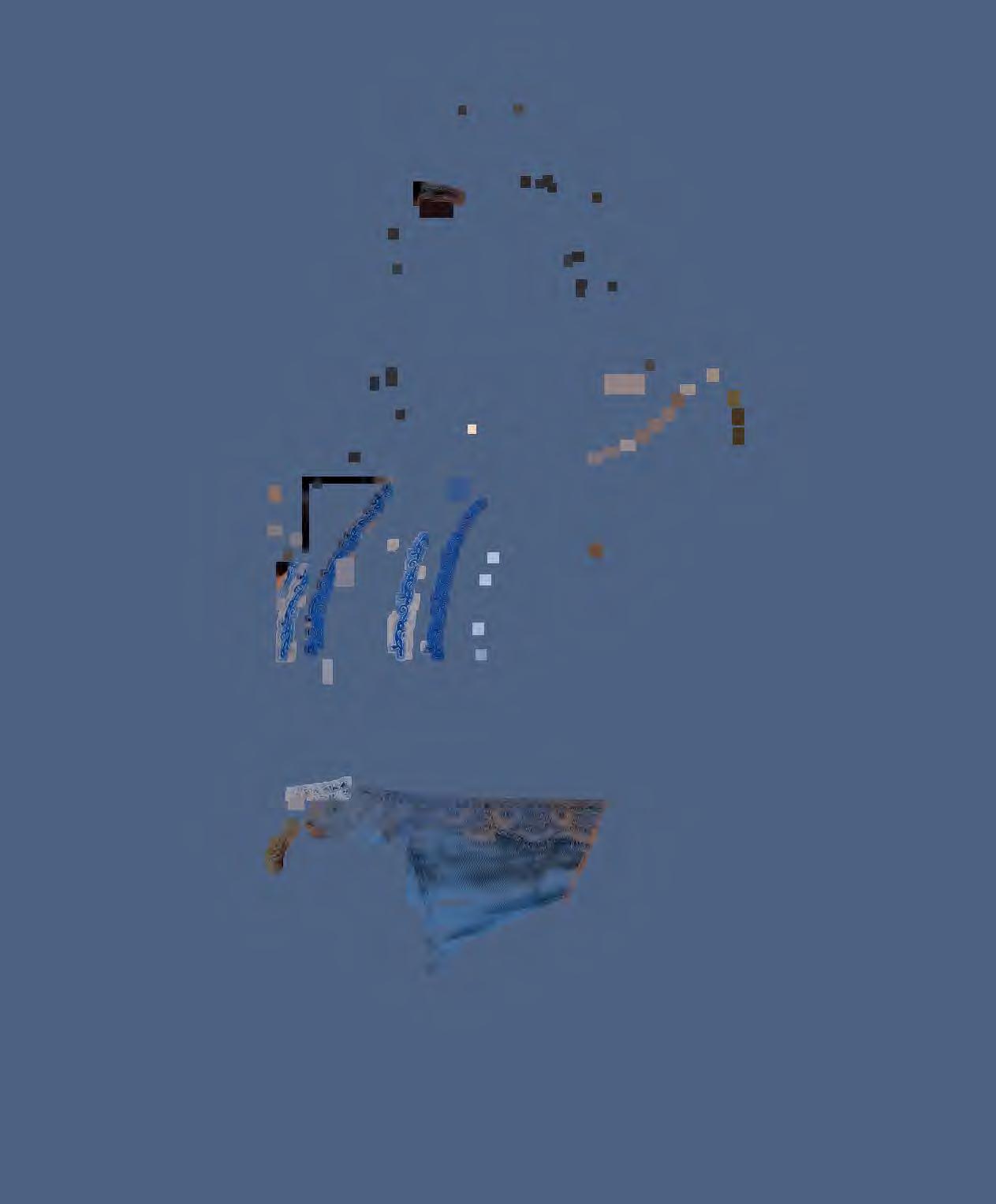

MMentorship sits at the center of Richmond Law’s student experience, something Lara Ballout, ’24 and L’27, knows well. She spent the summer following her 1L year as an intern with a federal magistrate judge in Norfolk, Virginia, and her law school mentors helped her through every step. From her career advisor — who shared the opportunity with Ballout — to her upperclassmen peers — who advised her based on their previous judicial internships — Ballout wasn’t surprised to find guidance for each question.
The choice to pursue her law degree at her alma mater was easy. “For me, the biggest thing about Richmond is the community,” Ballout said. “I love that there’s an open-door policy with all of our professors, and there’s also such amazing opportunities inside and outside of the classroom.”
Every 1L is assigned four distinct mentors: peer mentor, student section mentor, faculty mentor, and career advisor. Ballout also connected with upperclassmen, professors, and alumni for advice ranging from potential careers to how to navigate law school. It’s the community that forms the foundation of Richmond
Law, and that community begins with the first step into the building.
A BRIDGE TO LAW SCHOOL
While considering the judicial internship, Ballout wanted an on-the-ground perspective of what to expect for both the interview and the experience. She immediately turned to her peer and student section mentors. Beyond their titles, they were two of the first people at law school whom she called friends.
“The peer mentor and the section mentor are going through it at the same time as us,” Ballout said. “Sometimes the school takes a more structured, formal approach, but [at times you need] the perspective of someone who’s done it or has personal experience.”
At the simplest level, the peer and student section mentors are fonts of information about classes, professors, careers, and extracurriculars. But they also connect 1Ls to the rest of the law school. Since the 1L class is largely isolated from the upper classes at first, peer and student section mentors integrate 1Ls into the community by helping them acclimate to law school and facilitating meetings with peers.
As Ballout’s peer mentor, Anna Bickley, L’26, was available for any individualized mentorship from formal checkins over coffee to informal text messages during the day. Bickley also shared her experiences with the University of Richmond Law Review and her interest in a clerkship as Ballout explored career options.
The opportunity to be a mentor is what Bickley considers a chance to reflect on the lessons she has learned so far.
““Law school moves quickly. All of a sudden, you’re a 2L, and someone’s asking you for advice, and you’re like, ‘I have no advice to give. I’m still figuring it out,’” Bickley said. “But at the same time, it means that 1L year feels so recent to me, so I can say to [Ballout], ‘I remember when I was going through that. Please let me help you.’”
While Bickley guided Ballout on an individual level, Becca Herzog, L’26, oversaw Ballout and a group of approximately 30 1Ls as a student section mentor. Herzog served as an orientation leader and hosted formal events and informal gatherings throughout the year. For example, she partnered with another section mentor to host a conversation about class registration over Taco Bell.
Section mentors also met monthly with Laura Webb, associate dean of student success, to discuss concerns and provide an eyewitness report of the 1L class’s progress. During the meetings, 3L section mentors offered advice to 2L mentors about how to respond to specific situations. These conversations allowed Webb to relay larger issues to the other deans.
Mentorship requires both Bickley
EVERY STUDENT HAS THEIR OWN STRENGTHS, THEIR OWN GOALS, THEIR OWN PATH,
and not everyone’s path looks the same.”
and Herzog to filter their experiences in ways that are constructive for Ballout. They emphasize being able to identify the most pertinent advice to one’s goals.
“You are going to get so much advice in the next three years of your time here,” Herzog told her 1L section. “What you need to do is take what works for you and leave what doesn’t, and that’s going to look different for each one of you.”
For Ballout, what began as formal mentorship transformed into friendships that branched out beyond academics and careers. She and Herzog bonded over their shared hometown of Midlothian and experiences living with family while attending law school.
Bickley, who prioritizes her well-being through yoga and time with friends outside of Richmond Law, passed that wisdom on to Ballout. “Lara can always come to me,” Bickley said. “It’s not like once she gets to her second year, I’ll never speak to her again. I think I will always be an older person she can come to, and she will always be someone I check in on and look out for.”
SIGNPOSTS TO THE FUTURE
Meredith Harbach, professor of law, arranges her fall semester schedule each year to focus on her 1L course on civil procedure and its accompanying office hours. While part of her organizational strategy is to offer more office
“
SOMETIMES THE SCHOOL TAKES A MORE STRUCTURED, FORMAL APPROACH, but at times you need the perspective of someone who’s done it or has personal exp erience.”

hours for this complex course, the other part is to have ample time for the 1Ls who come to her with questions outside of class.
“As much as [mentorship is] imparting information, I also feel like it’s listening and trying to meet our students where they are,” Harbach said. “Often, that’s academically and professionally. Sometimes, that’s also personally.”
Ballout was among a group of civil procedure students who visited Harbach frequently for advice about issues they faced while acclimating to law school — issues both academic and personal. “[Professor Harbach] would tell us the various different routes we could take to do something, but then she would also tell us the consequences or what potentially positive things come out of it,” Ballout said.
Although Harbach wasn’t one of Ballout’s official mentors, she quickly became someone the latter could turn to with questions about class registration and what a potential career as a law professor would look like.
Both Harbach and Professor Jonathan Stubbs, Ballout’s faculty mentor, were essential in building her values as a lawyer. When Ballout received conflicting opinions about which classes were important when pursuing specific
careers, Stubbs reminded her that the best classes to take were topics that mattered to her.
“Every time I talk to Professor Stubbs, he always brings it back to, ‘Why did I come to law school? Why am I doing the things that I’m doing? Why do I care about certain topics, and what makes me passionate about the law?’” Ballout said.
In the Career Development Office, Carole Yeatts, ’90, Ballout’s career advisor, echoes a similar philosophy with each of her advisees. The oneon-one mentorship over three years allows Yeatts’ guidance to evolve with Ballout’s interests.
“What we try to do with the Career Development Office is give a tailored approach to advising [each of] our students,” Yeatts said. “Every student has their own strengths, their own goals,
their own path, and not everyone’s path looks the same.”
Yeatts describes her role as a coach who teaches Ballout how to search for jobs and market her strengths to potential employers. Yeatts utilizes the school’s network of alumni, including former advisees, for insight into the practice of law, a technique she considers the best way for Ballout to find a suitable career.
When Ballout was struggling to obtain an internship, Yeatts directed her to the opportunity with the Norfolk magistrate judge and prepared her for the interview.
“My philosophy is, ‘We’re here to give the students the tools they need not just to find a summer job and not just to find their first job after graduation but also to find the job after that,’” Yeatts said.
Harbach calls Richmond Law’s approach the long view of professional development. The classroom is the starting point, but the importance of faculty and career mentors is to help students develop a holistic professional identity that will serve them alongside legal knowledge far into their future careers.
“I hope they gain confidence — both as students and future lawyers — that they have been intentional about figuring out their values and priorities and having a real sense of self-efficacy that they can establish these goals and move toward them.”
THE DEFINITION OF COMMUNITY
Career Advisor
A dedicated member of the Career Development Office will support you through law school and beyond as you navigate your career aspirations.
Peer Mentor
Matched with you based on your interests and background, your peer mentor is there to help you navigate the transition to and challenges of law school.
Section Mentor
Your section mentor facilitates building community within your first-year section and ensures you all stay in touch with the community at large.
Faculty Mentor
Based on your academic interests, you’ll have a faculty advisor there to counsel and collaborate with you as you work toward achieving your goals.

Back when Herzog was an incoming 1L, she attended a social event for 1Ls and section mentors. Although she spoke with her own section mentor, she fondly recalls one of the other mentors who initiated a conversation.
“I always thought the best kind of mentor was not somebody who was necessarily assigned to somebody but was always willing to be in those shoes for people,” Herzog said. “I think that there is a great sense of community, and that only comes from people who are willing to connect. It cultivates the culture that we have at Richmond, which is one of collaboration.”
That culture not only thrives from mentor to mentee, but also the opposite direction. Mentees have just as much value in the mentorship relationship, Yeatts said. “They
sometimes think they don’t know enough or haven’t experienced enough or don’t have much to offer, [but] ask anyone who serves as an official or unofficial mentor for a law student. The mentor gets as much joy and value out of the relationship as the mentee does.”
Ballout’s first year affirmed her reasons for continuing her studies at Richmond. And as she entered her second year as a peer mentor, the cycle began anew.
“Mentorship at Richmond has really shown me a community and support system no matter what kind of problem I’m having, big or small,” Ballout said. “It’s really nice having that voice of reason affirming that you’re meant to be in law school.” ■
Students benefit from a web of mentoring support throughout their education at Richmond Law.
Examining the structure behind constitutional law
At first glance, constitutional law might seem like a battle of ideologies — but for Professor Riley Keenan, deeper structural questions demand our attention. As a scholar of federal courts and constitutional law, Keenan examines the rules and processes that shape how public law litigation plays out in federal courts.
“I’m less focused on individual amendments and more interested in the framework that governs constitutional decision-making,” he explained. His work tackles big-picture procedural issues — like whether courts can issue nationwide injunctions or how precedent should work when it comes to interpretive methods like originalism.
One of his current projects explores whether the Supreme Court is attempting to entrench its interpretive methods — such as originalism — as binding precedent for future courts. “That’s something we should approach with caution,” he said. “Regardless of your perspective, we should be able to live within a pluralistic legal system that allows for reasonable disagreement.”
Keenan’s scholarship has also addressed remedies — particularly federal courts’ authority to block presidential actions or issue broad relief. His opinion diverged from the Court’s recent decision restricting the use of universal injunctions, but he’s unfazed. “We’re all entitled to our perspectives,” he said with a smile.

His interest in these topics stems from a fundamental question: Is constitutional law really law — or is it just politics in disguise? “If we’re going to have an unelected branch of government that has the power to make sweeping decisions about how our society is organized, there has to be some sort of organizing principle beyond which president appointed which justice.”
Before joining the Richmond Law faculty, Keenan clerked in the 9th Circuit and a U.S. District Court, practiced appellate law at Latham & Watkins in Washington, D.C., and served as a visiting assistant professor at Cornell Law, his alma mater. But he always had academia in the back of his mind — even authoring his first law review article while studying for the bar.
Teaching has quickly become one of his favorite parts of the role. “When you have to explain what decisions mean to someone who has never thought about constitutional law before, that’s when you really start to see the gaps and the tensions. It feeds right back into the research.”
Whether he’s in the classroom or on the page, Keenan is committed to fortifying legal structures that operate with rigor, fairness, and intellectual honesty — even when some moments make that feel like an uphill climb. “History is long,” he said. “Hopefully, one day it’ll feel more like law again.”

TARA CASEY and JULIE MCCONNELL were recognized by the Supreme Court of Virginia Access to Justice Commission as members of the Pro Bono Service Honor Roll. This recognition was based on their contributions of 40+ hours of pro bono service during the 20232024 bar year.
KRISHNEE COLEY and LAURA WEBB co-authored “Integrating Academic Success,” published in the spring issue of Raising the Bar, a quarterly publication designed for legal and bar exam professionals.
ERIN COLLINS ’ article “Alternative Approaches: Beyond Problem-Solving Courts” was published in Judicature In it, she critiques problem-solving courts for reinforcing existing carceral logic and calls for community-based, abolitionist alternatives that separate care from punishment.
JANICE CRAFT has been an active participant in the Association of American Law Schools. She presented “Keeping it All Together” at the Workshop for New Law School Teachers in June and “Balance and Well-Being in Legal Education Works-inProgress,” “Developing Courageous Leaders: Trailblazing and Diverse Approaches to Leadership Education for Law Students,” and “Maintaining Balance in Troubled Times” at the annual meeting in January.
TOM DONNELLY has two forthcoming articles. “Popular Originalism” and “Popular Constitutionalism in a Populist Age” will both be published in the BYU Law Review
JOEL EISEN ’s article “Artificial Intelligence and Energy Democracy” (with Heather Payne of Ohio State), is forthcoming in the San Diego Law Review. In it, he explores how artificial intelligence, while increasing strain on the electric grid through data center energy use, can also be harnessed for public good by supporting citizen participation in public utility commission proceedings.
JESSICA ERICKSON and CORINNA LAIN were installed as the George E. Allen Chairs in Law. The positions honor the legacy of Allen, founding partner of the Richmond-based law firm Allen, Allen, Allen & Allen. Among his many citations, in 1965 Allen became the first recipient of the American College of Trial Lawyers’ Award for Courageous Advocacy, recognized for his pro bono representation of a Black law student charged with felonious assault while attempting to file papers in the Prince Edward County courthouse during Virginia’s this period of massive resistance.
CHIARA GIORGETTI ’s new book, The UNCITRAL Code of Conduct for Arbitrators in International Investment Dispute Resolution, co-authored with international arbitration attorney Michele Potestà, will be published by Kluwer Law International.
In MARISSA JACKSON SOW ’s forthcoming article in the Maryland Law Review, “Social Murder and the Antisocial Contract,” she examines social murder, which refers to the deliberate, state-driven destruction of both lives and social systems, and argues that it is driven by antisocial policies that treat certain people as expendable and aim to dismantle democratic and constitutional norms.
In KRISTEN OSENGA ’s latest Belmont Law Review article, “IP, AT, and AAAS: What Intellectual Property Can Teach Antitrust About the War on Amazon Basics,” she argues that antitrust attacks on Amazon Basics are misguided, as its use of private-label strategies mirrors those of brick-and-mortar retailers and ultimately benefits consumers through competition and lower prices.
In JACK PREIS ’ forthcoming Wake Forest Law Review article, “Qualified Immunity and Subjective Knowledge,” he argues that the doctrine of qualified immunity contains a fundamental contradiction wherein courts claim officers aren’t protected if they knowingly violate the law, yet often disregard an officer’s knowledge in their analysis. By revisiting Harlow v. Fitzgerald and examining Justice Lewis F. Powell’s papers, he defends the relevance of subjective knowledge and proposes ways plaintiffs can prove it in court.
ANDY SPALDING has been appointed to the 2034 Winter Olympics Ethics Committee. In this capacity, he will guide the development of policies that will govern human rights and anti-corruption compliance for all entities involved in the planning and execution of the Games.
ALLISON TAIT has launched a weekly newsletter where she writes about families, money, and inequality, exploring inheritances both left and received. Her book Family Money: How Credit and Debt Work on Both Ends of the Wealth Spectrum will be published next year by University of California Press.
WHAT FUN
Richmond Law’s alumni weekend was a blast as classmates and friends reconnected and reminisced at receptions and parties.
We want to hear from you.
Send your Class Note to classnotes@richmond.edu. To reach the alumni office, email lawalumni@richmond.edu or call 804-289-8028. Contact us by mail at Law Alumni, University of Richmond School of Law, University of Richmond, VA 23173.
1980s
MARY BABB MORRIS, W’81 AND L’85 , was part of a group of 1981 alumnae who gathered at the home of LIZ YANCEY CONNORS, B’81 , in Steamboat Springs, Colorado, to celebrate a milestone birthday last year. Attendees included undergraduate classmates and friends Mary Rothrock Bessos, B’81; Cindy Russell Knowles, B’81 and GB’86; Anne Lee Nottingham McCorey, B’81; Mary Beth Capasse Carroll, B’81; Carolyn Fader Yowell, B’81; Kim Carpenter Shelton, W’81; and Anne Edmonds Ramsay, B’81.
Virginia Gov. Glenn Younkin appointed STEPHEN REARDON, L’88 , to the Virginia Military Institute Board of Visitors. Stephen is an attorney with Spotts Fain, where he focuses his practice on health care, corporate and business law, estate administra-
tion, wills, and trusts law. He has served with the U.S. Army Corps of Engineers and the Army Reserve and was president of the board for Benedictine Schools of Richmond.
1990s
The family law section of the Virginia State Bar awarded its Family Law Service Award to Virginia Beach, Virginia, attorney RICHARD E. GARRIOTT JR., R’91 AND L’96 . Richard is founder of Garriott Maurer, where he helps clients with divorce, property settlement agreements, child custody, and premarital agreements. He has served as past chair of the family law section board of governors and as the 2019 Virginia State Bar president. He also is a fellow of the Virginia Law Foundation and the American Bar Foundation and a life fellow of the American Academy of Matrimonial Lawyers.

Attorneys who nominated him wrote, “His willingness to give his time in mentoring the next generation of family law attorneys is invaluable. … He does all of this with passion, energy, and commitment.”
LISA HORNBECK PREZELSKI, L’91 , joined Williams Family Law, where she assists clients in resolving disputes related to divorce, custody, child support, spousal support, alimony, equitable distribution of marital property, and separation. She spent 16 years in the Bucks County Family Masters Office, where she was a divorce hearing officer and custody conciliator.
Virginia Lawyers Weekly named CHRISTOPHER W. STEVENS, L’97 , a “Go To Lawyer.” A principal at Woods Rogers in Roanoke, Virginia, he is an experienced litigator well versed in personal injury, wrongful death, insurance coverage, and workers’ compensation matters. He is a member of the Defense Research Institute, the Virginia Association of Defense Attorneys, and the International Association of Defense Counsel.
KRISTIN JORDAN, L’98 , joined the law firm Harris Beach Murtha’s cannabis and real estate industry teams, based in New York City. Kristin was active in New York’s effort to legalize cannabis prior to 2021 through the Start Smart Coalition and remains deeply involved.
2000s
Best Lawyers in America named JOHN H. FILICE, L’01 , to its 2025 list. John works for the firm Rubin, Glickman, Steinberg & Gifford of Montgomery County, Pennsylvania, in estate planning, estate administration, real estate, and business formation. He is a member of the Pennsylvania and Montgomery bar associations and served as editor of the Montgomery County Law Reporter from 2003 to 2005. He also is a member of the National Academy of Elder Law Attorneys.
BRADI SMITH, L’06 , is partner at the law firm Kilpatrick Townsend & Stockton, where her practice focuses on global trademark law, including portfolio management, clearance, prosecution, audits, registry disputes, and enforcement. She represents clients in entertainment, finance, software, technology, and consumer goods.
ERIK SIEBERT, L’09 , is an interim U.S. attorney for the Eastern District of Virginia, where he oversees approximately 300 prosecutors, civil litigators, and support personnel in Alexandria, Richmond, Norfolk, and Newport News. He began his service with the Eastern District in 2010 as an assistant U.S. attorney, handling cases of violent crime, international and domestic drug trafficking, illegal possession and trafficking of firearms, fraud, and other crimes. He was the lead attorney for the

Organized Crime Drug Enforcement Task Force from 2019 to 2024 and was a deputy criminal supervisor for the Eastern District’s Richmond division. Previously, he was a police officer in Washington, D.C.
2010s
ANTHONY BESSETTE, L’10 , is a full-time attorney for Hopewell, Virginia. He came to Hopewell from Albemarle County, Virginia, where he had been since 2018. Prior to that, he was an assistant state attorney general for procurement and technology.
MATT ANDERSON, L’13 , is a shareholder at the law firm Williams Mullen in Richmond. He is a member of the firm’s labor, employment, and immigration team, focusing on guiding employers through employment law compliance and representing their interests in state and federal litigation.
Hunton Andrews Kurth announced the promotion of LATOSHA ELLIS, L’14 , in the firm’s Washington, D.C., office. She provides insurance coverage counsel, especially in cyber insurance, employment practices liability, and professional liability in the higher education, retail, legal, and financial sectors.
SERVICE COMES FIRST
BENEDICT ROEMER, L’25 , never set out to collect accolades — though his record is full of them. With awards ranging from the Virginia State Bar’s Oliver White Hill Student Pro Bono Award to recognition from the Order of the Barristers, Roemer’s résumé reads like a checklist for civic-minded excellence. But for Roemer, service has always come first.
“I knew going into law school that I wanted to do public interest work,” he says. “But it was the professors and community at Richmond Law that helped me figure out exactly how.”
Roemer’s law school journey was shaped by meaningful mentorship. Professors like Corinna Lain and Mary Kelly Tate encouraged him to stay true to his interest in civil rights and criminal law. “They reminded me that I can choose a path I’m excited about and make meaning out of it — and they’d be there to help,” he says.
That support translated into action. Roemer took on externships with the ACLU of Virginia and the Legal Aid Justice Center, clerked for a federal judge, and worked in the school’s Institute for Actual Innocence clinic. He also served as president of the Moot Court board and the American Constitution Society.
“Benedict has always been about service,” wrote Professor Tara Casey in her nomination letter for the Oliver White Hill Award. “From teaching special education in Baltimore to organizing the Street Law program in Richmond, he brings joy to the work.”
Now preparing to begin his career as a public defender in Petersburg, Virginia, Roemer is focused on the future. “I’m most interested in motions practice and appellate work — the legal questions that shape what justice looks like in the courtroom,” he says.
With his bar exam ahead and a public defense career on deck, Roemer is ready to do what he’s always done: serve others, fully and fearlessly.
—Rayne Miller
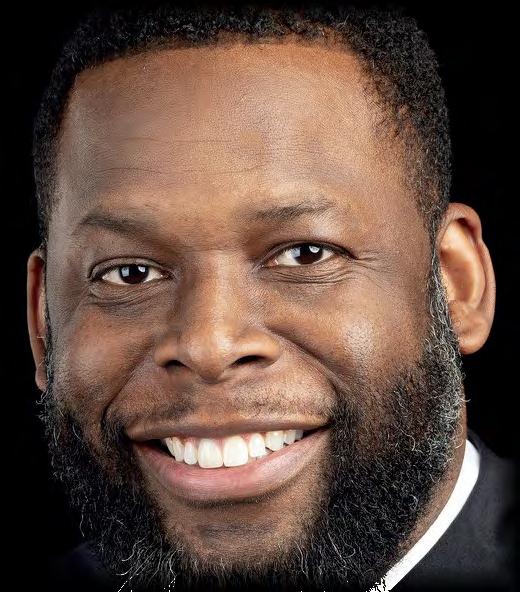

OUTREACH FROM THE BENCH
When the Honorable DONTAÉ BUGG, L’06 , began his tenure as a circuit court judge of the 19th Judicial Circuit in Fairfax County, Virginia, his goal was not only to serve his diverse community, but to rejuvenate its administration of justice with what he’s learned through lived experience.
Bugg’s journey to the bench began as a private practitioner focusing on criminal defense and domestic relations matters. While he managed his own firm, several people urged him to consider a judicial career. He began paying more attention to the role of the judge in court, and in 2016, Bugg was appointed a substitute judge for the general district and juvenile and domestic relations district courts. He was confirmed to the circuit court bench in 2019.
In addition to his professional experience, Bugg carried wisdom from his cousin, whose incarceration provided insight into the criminal justice system. And he found a mentor in the Honorable Gerald Bruce Lee, the second Black man to become a circuit court judge in Fairfax County, who shared valuable insight about the importance of his presence on the bench.
“It’s important to have different perspectives and life experiences so you can have a fully informed and engaged discussion about decisions that will impact people who perhaps live life completely differently than some folks may be able to understand,” Bugg said.
On his days off, Bugg visits schools throughout the state to speak with students about his career. He emphasizes the importance of these visits as a way to stay connected to the people he serves and to inspire the next generation of legal professionals, no matter their background.
“It’s about keeping proper perspective, especially if we sit in judgment of other people,” he said. “Being a judge is a job. We are still people. We still have to be members of the community and society.”
Amy
Ogle, ’26
STEVEN W. LIPPMAN, L’16 , is counsel at the law firm Christian & Barton in Richmond. He represents public and private entities on industrial development projects, mergers and acquisitions, joint ventures, and private equity transactions.
ANDREW RUSSEK, L’19 , joined Combs Waterkotte as an associate attorney on its Missouri criminal defense team. With experience as both a prosecutor and a public defender, he brings “a unique and powerful perspective to defending clients facing serious felony and misdemeanor charges.” Andrew previously was a prosecutor in the St. Louis circuit attorney’s office, where he led the violent crime unit.
2020s
KEN ANDERSON, ’17 AND L’20 , published the book Footprints in Faith: A History of St. Philip’s Episcopal Church, Richmond, Virginia, 1861-2021. The book chronicles the history of the oldest Episcopal parish founded by African Americans in the American South. Ken started attending St. Philip’s while a student at UR after receiving a university grant to study his family’s history in the parish and in Richmond. The book is available on Amazon.
ANNALISA GOBIN, L’23 , is a litigation attorney in Orlando, Florida. Her undergraduate alma mater, University of Central Florida, recognized her on its “30 Under 30” list, which honors young alumni for their professional and personal achievements.
In Memoriam
HARRY L. MAPP JR., L’55 , of South Boston, Virginia, March 18, 2022
LLOYD H. HANSEN, L’57 , of Dunedin, Florida, July 25, 2022
BERNARD H. “BERNIE” CROSS, L’58 , of Hanover, Virginia, Dec. 14, 2024
ERNEST K. “TOM” GEISLER JR., L’58 , of Richmond, Virginia, March 2, 2025
LAWRENCE L. KOONTZ JR., L’65 AND H’99 , of Salem, Virginia, March 16, 2025
GRIFFIN T. “BUS” GARNETT III, R’63 AND L’66 , of Arlington, Virginia, Nov. 20, 2024
ROGER L. DEMIK, B’66 AND L’69 , of Alexandria, Virginia, Nov. 16, 2023

ROBERT J. “BOB” KLOETI, L’75 , of North Chesterfield, Virginia, Jan. 2, 2025
JOHN C. “CASEY” STRUCKMANN SR. , L’77 , of Front Royal, Virginia, May 15, 2024
THOMAS E. LAUNDER III, R’76 AND L’79 , of Richmond, Virginia, Dec. 13, 2024
MARY KEGLEY BUCKLEN, L’81 , of Wytheville, Virginia, Feb. 22, 2025
MEREDITH SANDERLIN THROWER, ’94 AND L’03 , of Henrico, Virginia, Jan. 18, 2025
FRANCIS A. “ALEX” SUTHERLAND III, L’15 , of Greensboro, North Carolina, Dec. 26, 2024
